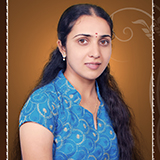 Data collection is a crucial aspect of any research project. Depending on the nature and scope of the research question, collecting quality data requires considerable investment of time and resources. Indeed, any research endeavour is handicapped without the relevant data.
Data collection is a crucial aspect of any research project. Depending on the nature and scope of the research question, collecting quality data requires considerable investment of time and resources. Indeed, any research endeavour is handicapped without the relevant data.
During a recent health systems research project, I had to collect a lot of information from government agencies, which turned out to be no cake walk. There were occasions when I had to wait for hours at a time to collect documents, to meet officials, and to conduct interviews. Those waiting periods gave me sufficient time to observe and reflect on the functioning of some of the government agencies in India.
Health systems research often requires data from, and cooperation by, the state sector authorities. So, as a rule of thumb, the health systems researchers work closely with government officials and will require data from them, the interpretation of which might reflect negatively upon those state sector authorities. This can, I think, make some officials and other employees feel that they are being cross examined or interrogated when researchers go to collect data from them. The various situations that I’ve been in while collecting data from government officials have enabled me to develop skills to deal with this tension and the struggle of getting relevant data. The following strategies have worked well for me while trying to obtain data:
• Administrative delays seem to be built into the working of the government’s system. Patience and perseverance are key to getting work done in such instances. However, for undue delays, identify the grievance mechanisms available within the system.
• Skilful probing on the part of the researcher is essential in seeking elaboration, details, and clarifications while not compromising on research ethics.
• Taking cues from the informal discussions that happen with key informants can help us to draw meaningful inferences from the formal data collected from them. Keep in mind the role of informal data collection while writing a protocol and seeking ethical review.
• Meeting face to face is best in addition to contacting officials over the phone. Phone calls are great and convenient; however, sometimes it makes sense to meet in person even if it involves some time, cost, and inconvenience. It ensures constructive engagement: our communication to the government authorities is better understood and we are most likely to get the required data.
• As we come across different people in the field while collecting data, maintaining a neutral attitude towards them all can sometimes be difficult but it is nonetheless very essential for a researcher. When we become judgmental, we tend to react negatively, which has a direct impact on data collection. It’s desirable to record such instances as it helps in data analysis and/or spelling out research limitations.
• Even if you have a letter of support issued by the highest authority in the government for the research you’re doing, having separate letters addressed to the heads of the relevant departments, which clearly spells out what documents you need from their department, is of great use. This will save time otherwise spent explaining your purpose for getting such data from their office. Of course, in health systems research, you cannot always predict all the documents you will need—you often discover along the way “new” data that will help your research.
• Expect the unexpected: Be prepared to encounter opportunities for foraging further data when you’ve gone with predetermined data collection plans. For example, you might get to meet people who are likely to provide new insights/thoughts on the data you want or who will suggest an innovative data collection strategy.
During my experiences, I’ve realised that to get the best data the basic tenet is to establish trust between researchers and the respondents. Due to the complexities of the health system, capturing the relevant data for health systems research remains a great challenge, but it’s not an insurmountable one.
Meena Putturaj is a research officer at the Institute of Public Health, Bangalore, India.
Competing interests: None declared.
